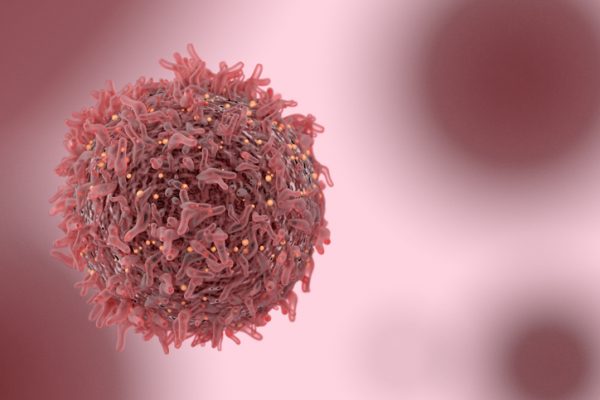
An approved immune checkpoint inhibitor has shown what its manufacturer calls the first instance of significantly improved overall survival and durable responses in first-line extensive-stage small-cell lung cancer.
London-based drugmaker AstraZeneca said Monday that data from the Phase III CASPIAN study of Imfinzi (durvalumab) combined with chemotherapy produced a statistically significant and clinically meaningful improvement in OS compared with chemotherapy alone. The data were presented at the World Conference on Lung Cancer in Barcelona, Spain. The company had said in late June that CASPIAN was successful, but did not disclose further details.
Median OS for the Imfinzi arm was 13 months, while for the chemotherapy arm it was 10.3 months, with a respective 33.9 percent and 24.7 percent of patients still alive at 18 months. The objective response rate was 67.9 percent for the Imfinzi arm and 57.6 percent for the control arm, with a respective 22.7 percent and 6.3 percent of patients maintaining their responses to therapy at 12 months.
“We are encouraged to see more than a third of small-cell lung cancer patients treated with Imfinzi plus chemotherapy alive at the 18-month landmark, which is remarkable given the aggressive nature of the disease,” AstraZeneca executive vice president for oncology research and development Jose Baselga said in a statement, adding that the company plans to take the results to regulatory agencies around the world.
Patients in CASPIAN received the platinum chemotherapy drug carboplatin or cisplatin with either Imfinzi or etoposide, another chemotherapy drug. Roche’s Tecentriq (atezolizumab) is currently approved for treating first-line extensive-stage SCLC, in combination with carboplatin and etoposide. Imfinzi and Tecentriq are PD-L1 checkpoint inhibitors. First-line extensive stage disease accounts for two-thirds of SCLC cases, though SCLC itself represents a minority of cases of lung cancer, with non-small cell lung cancer making up the majority.
In the Phase III study that led to Tecentriq’s SCLC label, patients receiving the drug had a median overall survival of 12.3 months, compared with 10.3 months among those receiving placebo with carboplatin and etoposide. Objective response rates were 60 percent and 64 percent, respectively, though the Tecentriq arm had a slightly higher rate of complete responses.
In contrast with its success in SCLC, Imfinzi has had less luck in NSCLC. In August, AstraZeneca said that results of the Phase III NEPTUNE study – combining Imfinzi with tremelimumab, the company’s investigational CTLA-4 inhibitor in first-line metastatic NSCLC – failed to show an improvement in overall survival compared with platinum chemotherapy. The combination also failed in the Phase III ARCTIC study in third-line NSCLC.
Photo: CGToolbox, Getty Images










